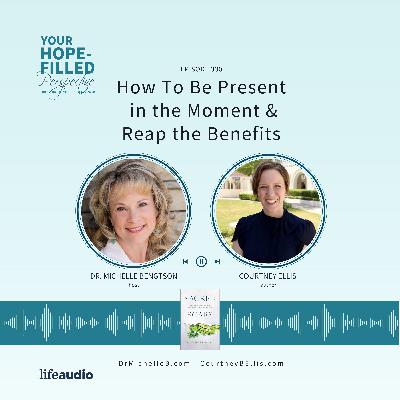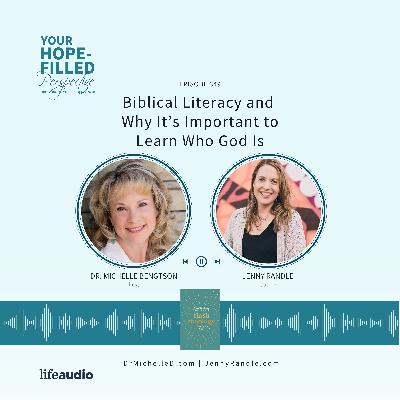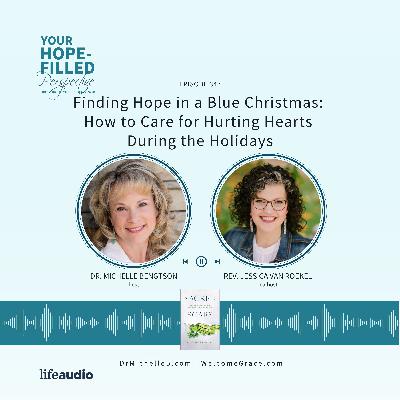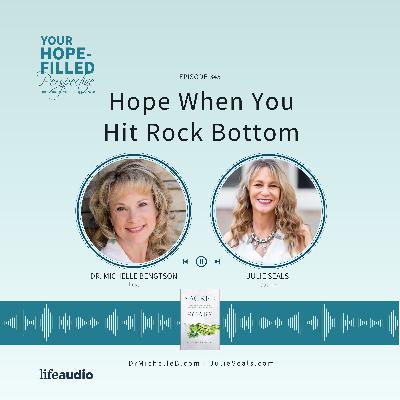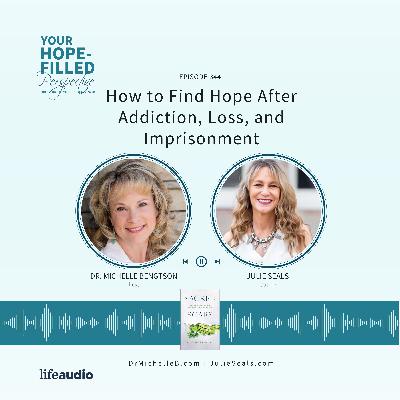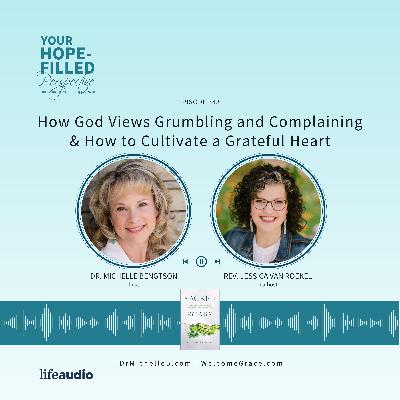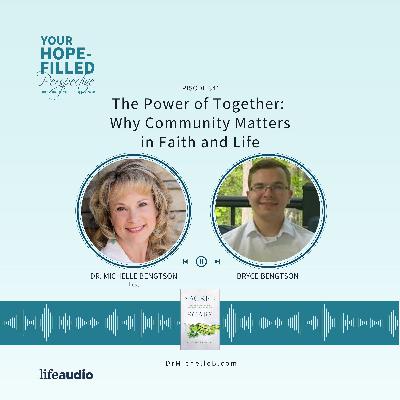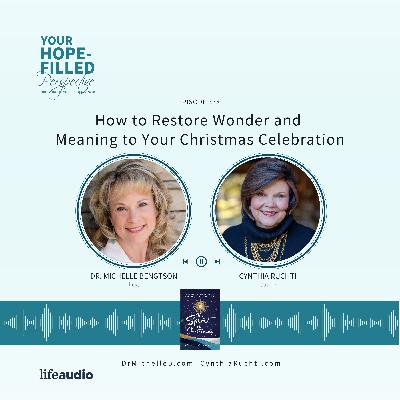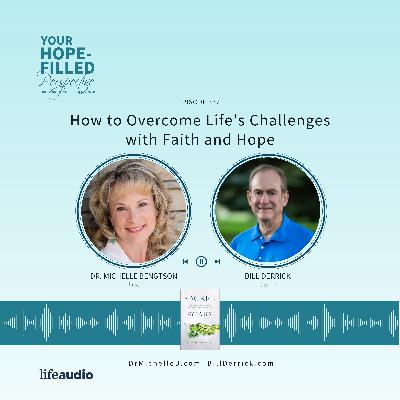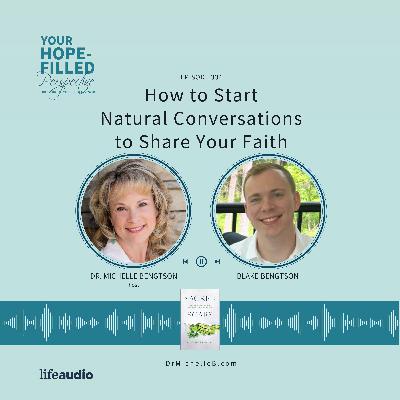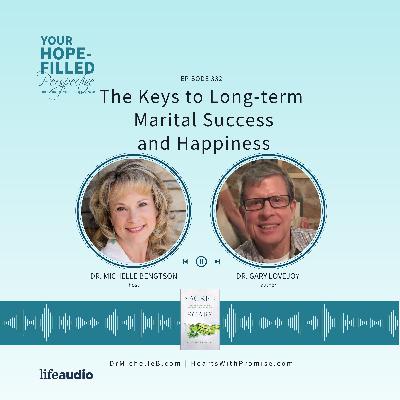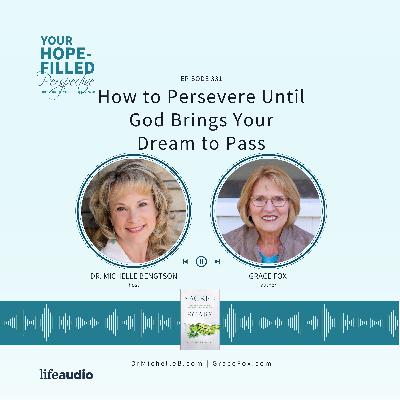How To Be Present in the Moment and Reap the Benefits
Description
Episode Summary:
Being busy is a drug for most people. We believe that busyness is a badge of honor, that constant activity is good, and that productivity (whatever that means), makes us worthwhile. People like to talk about being busy all the time, but oftentimes their relationships suffer.
So often we sleepwalk through our days, but there is a tremendous gift in practicing awareness in this present moment. In a culture that gives accolades for business and achievement, we run the risk of forgetting how to be present. Scripture reminds us to “Be still and know that I am God” (Psalm 46:10 ) but how often do we willingly slow down? My guest, Courtney Ellis and I talk about how to be present in the moment and reap the benefits.
Quotables from the episode:
- What would it look like to love my actual neighbors? What would it look like to press into this particular church? What would it look like to make our kids' schools our schools and really put our feet on the ground and help in all the ways that we can? And so this book came out of that desire that my husband and I had and that commitment we made before God to really try to live into the ministry of stability as long as he called us to. That's a big change after moving six times in six years. It is, it is. You learn some bad habits when you move a lot. Friends in the military, friends who have to move a lot and they say, yeah, you pick up some bad habits. So, we had to unlearn a lot of bad habits.
- You talk about leaning in and being present. So, what are some practical ways that we can choose to be present in the moment? And then what are some of the benefits? There are so many small, beautiful ways we can choose to be present. Often the easiest one is just to keep your phone in your pocket or your purse because it's fascinating. You'll be at the grocery store, and you see people standing in line and you can time it. People will stand in line patiently for about 30 seconds and then the hand goes down and the phone is out. And it's not that they're being impatient, but might as well use the time to do the word or scroll Facebook or whatever it is. And so, part of this, practicing this attentiveness toward God and being present in the moment is simply resisting that urge to do the easiest thing which is to pull out technology and distract ourselves.
- Sit near a window and just take a few minutes and observe what you see and it's almost like your soul is the shaken up snow globe and as you sit all of that snow starts to settle and you may hear from God, you may hear things in your own heart that you've been kind of stuffing down and as you're present to yourself, present to what you see around you, present to the Lord, beautiful things can happen.
- When we can make decisions in our lives ahead of time and leave them closed, it opens up our minds to new possibilities. It gives us new energy. And that's the difference between kind of leaving or living poised to leave and living planning to stay. And God may call us to go tomorrow, but today, if that decision is closed, we have all of these possibilities in front of us that we can turn our full attention to without already being fatigued. You refer to limits as a God -given grace. What do you mean by that? I don't like it. I'm going to start with that. I don't either. Talk about that for a minute. Yes. I want to be infinite. I want to keep going. I want to keep running. But limits ultimately are a grace and they're a reminder to us of our creatureliness that we are part of God's creation. We are not God.
- Even small things like coming to the end of a day and needing to go to sleep is a reminder of the limits God has set in our days, in our world, in our life. Multiple times a day we have to stop and eat. And that's an intentional creation of God. God could have created us to not need food. God could have created us to eat once a year. But these intentional checks and balances in our lives are an opportunity to practice dependence on God, to understand that our finitude is not burden, but it's grace, even if we are not always able to receive it in that way.
- Why do you call yourself an achievement addict and what does this have to do with learning to take a Sabbath rest? Yes, I would imagine I'm talking to another achievement addict here on the show. It takes one to know one. Yeah, I, especially early on in my life, that was where I would receive a lot of praise and adulation. And so I really grew into this. I am what I do. And if I've done enough in a day, I can feel good about myself, you know, when my husband and I compare notes at the end of the day and he'll say, "How was your day?" I still will most often jump to, "Well, I got a lot done and I feel really good about that." It's like, "Do you? Okay, let's talk about that. And there's nothing wrong with achievement, there's nothing wrong with being a driven person. But where you encounter some difficulty is when that becomes your identity. So, on a day where I'm ill, on a day where, you know, the kids didn't cooperate, on a day where something unexpected got thrown on my plate ministry -wise, does that mean I'm less of a person because I didn't check off my list? No, it doesn't. It means that God is the God of interruptions and God is the God of limitations.
- There's great grace in realizing that we are, you know, the old cliche, we're human beings, we're not human doings. and God has created us that way out of love and care and grace so we can rest at the end of the day even while leaving things undone. And that is the message of Sabbath is that once-a-week God commands doesn't invite doesn't suggest God commands that we rest from our labors and not because everything is done not because everything is polished and finished. And I love what Eugene Peterson, wonderful Presbyterian author has to say about Sabbath, which is that if you work with your mind, you should Sabbath with your hands. So, there should be worship, but also, you know, often my husband is out in the garden on Sabbath because that allows his mind to rest. But if you work with your hands, you should Sabbath with your mind.
- Busyness keeps us from stability and stability is what healthy people and a healthy society desperately needs.
- The United States has traditionally been one of the most mobile countries in the world with the average American moving about eleven times in their lifetimes. By contrast, Europeans move about four times.
- Busyness and the transitory nature of our lives and jobs means fewer deep connections with others.
- Fostering community is some of the toughest, most painful work we engage in. Being present means that we deliberately choose stability.
- In a world marked by transience, envy, and rootlessness, committing to stay put is a radical, unusual act.
- Transience threatens to dull our awareness of God.
- While stability may not always be our choice (like with a job relocation), it is something to be sought after.
- Remembering to pay attention can be the trickiest spiritual practice of all.
- Being present is about choices: setting aside time to rest (Sabbath) but also setting aside distractions (like technology).
- Sabbath is not a gift to you because you've achieved enough. It's actually a gift so that you will rest from your achievement and that's hard. In fact, you write remembering to pay attention can be the trickiest spiritual practice of to hack that a little think in many ways, those are the two primary spiritual disciplines, but what I'm learning is the older I get that the fundamental spiritual practice for all of us is learning to pay attention, to pay attention to God, to pay attention to our neighbor, to pay attention to what God is stirring up in our own souls, to pay attention to what God's stirring up in our broader culture.
- A lot of it comes back to those practices of noticing and being present with people. This is what Jesus did so well. Jesus was present with people who were very different than he was, people who had been wearing t -shirts with slogans that he did not agree with. And he did that by simply being present with people, by sharing meals with them, by having conversations, by noticing, he meets the woman at the well and through the power of the Holy Spirit, he knows things about her that we wouldn't have known, but we can notice, and we can love as Jesus loved. And so in building community, some of the best tools we have are not going on 100 miles an hour so we can pause at the mailbox and say, "Hey, how was your day?" So we can notice the person in the grocery store check-out line. So, it's slowing down and then practicing that same attentiveness, that spiritual practice of noticing with people.
- A big percentage of our listeners and viewers are dealing with pain, whether it's physical pain, it's emotional pain, relational pain, or even spiritual pain. So how can we learn to find God's presence in the present moment in the midst of our pain? What a good question. I think the first thing I'd say is sometimes you need to escape the pain a little bit and that's okay. Sometimes what you need are six episodes of the Great British Baking Show and God honors that and God blesses that. God doesn't always force us to face down our pain every minute of every day. So, it's kind of two feet of walking, we face it and then we take a breather, we take a rest, we take a nap. But I think the surprising thing, and we read this so often throughout the journey of Scripture, is that in those most painful moments, we find an intimacy with God that we don't find any other time.
- I would want to leave them with the gentle permission to slow down, to look up and look around, and to see what grace, God has strewn right in your path, right in f

